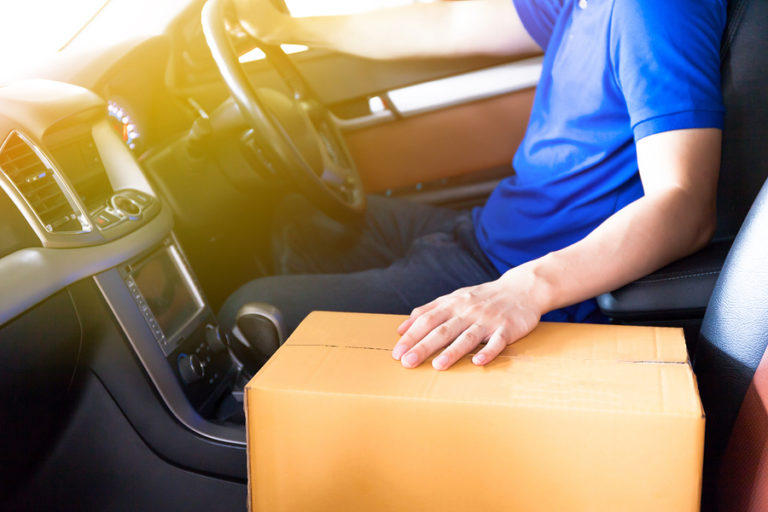
By Taylor Soper
A new lab at the University of Washington will bring together a multitude of stakeholders — urban planners, city officials, researchers, truck freight carriers, logistics experts, commercial developers, and companies like UPS, Nordstrom, and Costco — to come up with solutions that improve the way goods are delivered to our homes.
The Urban Freight Lab, part of the UW’s Supply Chain Transportation & Logistics department (SCTL), debuted on Wednesday. The lab will initially aim to figure out better ways for e-commerce companies to solve the “last mile,” or the last leg of a delivery that typically takes truck drivers through city streets, commercial vehicle load zones, and privately-owned buildings.
UPS, Nordstrom, and Costco are the founding industry members. The City of Seattle is putting up $285,000 over the next three years for the lab.
“The Urban Freight Lab at the UW SCTL Center is the place for companies working at the dead center of e-commerce in fast growing cities to develop and ground test low-cost, promising solutions to delivering goods,” SCTL director Anne Goodchild told GeekWire. “Urban Freight Lab membership benefits include delivery of new data-based knowledge and insights about the effects of several truck freight parking and freight-loading-bay action strategies proposed for implementation in the City of Seattle, before they are applied.”
At the outset, membership will be limited to 12 companies from four sectors: retail, urban truck freight carriers, technology companies, and retail and multifamily-residential building developers and operators. One of the founding members is John Dodero, vice president of engineering operations technology for UPS who heads up projects like robotics, autonomous vehicles, drones, and new scanning innovations. Membership costs $15,000 per year, per company.
“We have more than 300 Nordstrom and Nordstrom Rack stores — many in dense urban settings with a range of delivery settings, including common docks and unique situations,” Loren VandenBerghe, director of transportation at Nordstrom, said in a statement. “We are always interested in ways to better support our stores so we can better serve our customers. The SCTL’s efforts will be beneficial for us to glean some new best practices and actively participate in creating solutions so we can continue to do so.”
The UW said students and researchers in the SCTL will map existing freight infrastructure to learn more about how deliveries are being processed. They’ll also test solutions both in simulation and the real world, while coming up with an “Urban Freight Score” — similar to WalkScore — for various locations that puts a number on the ability for truck drivers to access a given drop-off area in Seattle.
The city’s involvement is also key, as limited curb and parking space in Seattle can affect how fast a delivery is completed. The UW said SCTL is unique compared to other supply chain research programs around the country given how public and private stakeholders are working together.
The “last mile” has become more of a pressing problem for supply chain managers as the e-commerce industry continues to grow and consumers expect their purchased products immediately. The UW cites Census data that shows U.S. online sales taking up 8 percent of total retail sales during Q1 of 2016, and up 15 percent from last year.
Tech giants and startups alike are trying to figure out the most efficient way to manage the last mile. A perfect example is Seattle-based Amazon, which is developing delivery drones and opening up Prime Now distribution centers — all to help speed up the time it takes between someone ordering online and that person receiving their purchase, particularly during the last stretch of delivery.
The UW is also involved in another new project aimed at solving transportation-related issues. This past March the university hosted a launch event for Challenge Seattle, a non-profit initiative led by former Washington Gov. Christine Gregoire that aims to create a better transportation system in Seattle. One key aspect of Challenge Seattle is a newly-established Mobility Innovation Center at the UW which, similar to the Urban Freight Lab, will bring together local government, the private sector and academic transportation experts to develop innovative solutions that improve the regional transportation infrastructure.